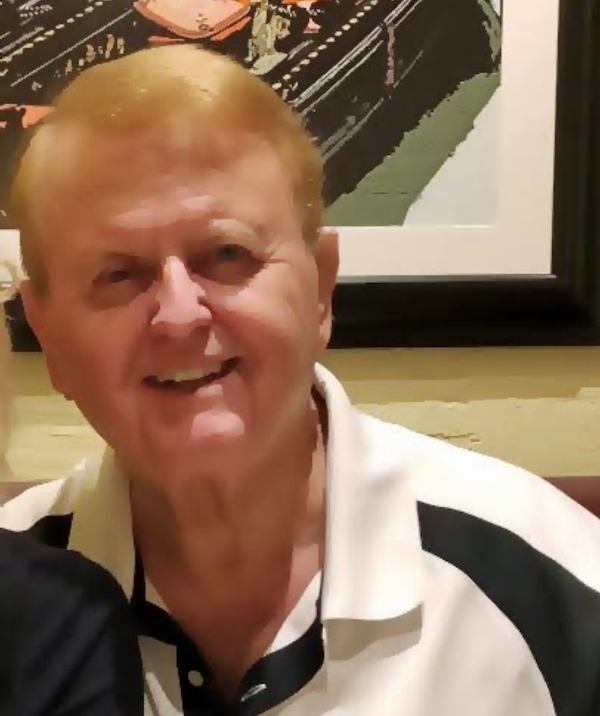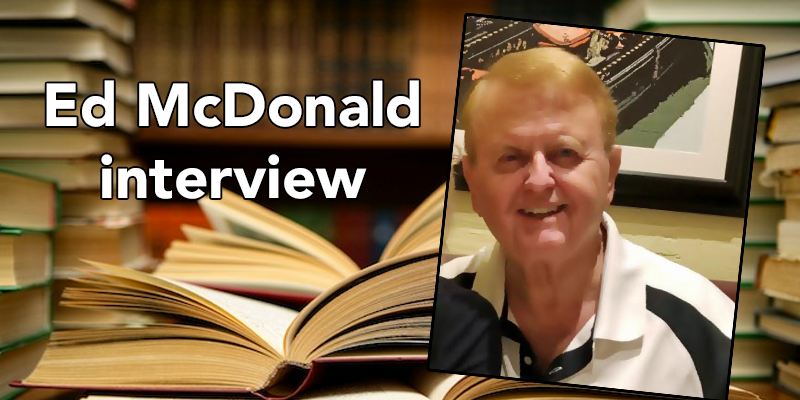Author Ed McDonald talks with me about his new book, Korea’s Game. He shares who has inspired him and which author he loves to read. I am grateful for Ed’s time and I hope you enjoy this interview.
Interview With Ed McDonald
Art Eddy: Talk about your inspiration for Korea’s Game.
Ed McDonald: The original inspiration for Korea’s Game came from my reading of Ted Koppel’s book, Lights Out. He clearly describes the history and construction of America’s power grid. He discusses its many weaknesses: its antiquated design, its varying degrees of maintenance and its varying levels of protection from cyberattack. Some parts of it are well protected. Others are not.
He outlines the 4 nations which have already infiltrated our grid. Of the four, only North Korea is highly likely to attack it. I found Koppel’s book fascinating, but then I like reading fact based materials. I was galvanized, and I thought that everyone in America should know this material. However, I realized that this material would have to be woven into fiction for people to be motivated to read it.
AE: How close is this book to something that could happen in real life?
EM: This is exactly what could happen at any time. It could happen tomorrow.
AE: How would America function if its power grid were to be knocked out?
EM: Largely, it would not continue to function. In my novel, I propose that 40 continental states are grid crashed. The specifics of that are detailed in the sequel, American Apocalypse. It
has been our experience that when one state is devastated by disaster, such as a hurricane, the other 49 states come to the rescue. However, if 40 states are devastated, then the remaining states are also weakened by referred damage and can only offer limited assistance to nearby states. In the damaged 40 states, there will be starvation, dehydration, robbery and murder, and the loss of essential services such as medical treatment, fire and police services. Even the toilets will not flush. More people will perish than would die from a nuclear exchange. One bright note is that the satellites would still be functioning. So, if someone were to have electricity, then they could still watch the news on their television.
AE: How did your experience in law enforcement, training SWAT, and in writing tactical textbooks impact this novel’s action?
Primarily, my experience taught me the importance of not making assumptions. Of course, you can trust your instincts and experience to posit who may be lying to you; however, you never act on the assumption that, for instance, a charming and articulate stranger is the ‘good guy’. Some bad guys can charm the tail feathers off of a duck. Also, I learned the absolute importance of procedures. Many good officers died so that procedures could be articulated and taught in police academies. (There is a story that goes with this.)
AE: Human trafficking. How scary was the results from your research, since you have kids?
ED: I was married my first wife who was a detective with the Sheriff’s Office. She was in the know about a commercial sex trafficking organization in Tucson. She was allowed to share some of this with me because I was also a certified and sworn officer. A local biker gang was holding women in different suburban homes prior to their being sent to the Alaskan pipeline construction zones. She explained to me that they had addicted all of these women to heroin so that they would not testify. As a result, if we were to send in a team to take them all out, they would not admit that they were captives because they all would be desperate for their next fix.
People often suggest that a prostitute could just save her income and have enough to travel to a distant city and rent an apartment while getting a ‘straight’ job. Unfortunately, their pimp takes every penny they make every evening with the result that it would be impossible to save any amount of money. Many of these girls are runaways, and pimps wait at large urban bus stops to look for confused teenage girls and offer them a place to sleep. Some are addicted to drugs. Others are kidnapped. Others are simply lured into situations from which they cannot extricate themselves.
AE: What are some ways we can protect our children from human trafficking?
EM: Communicate, communicate, communicate. It is natural for teenagers to want privacy as they mature. We must respect this, but at the same time listen carefully to anything they want to share with us and react appropriately. This requires some tact because what may seem like a genuine opportunity to a young person will set off alarm bells in the mind of a more experienced adult. For example, a recruiter may want your daughter to go to a glamorous foreign location to meet and greet guests and help them to learn English.
However, upon hearing this, the parents may envision themselves recruiting a SWAT team to extract her and return her. Parents need to stay in contact with professionals who, in addition to their principal occupation, need to monitor children and their contacts with other adults or college age acquaintances. Parents should never be shy about looking into anyone who sets off their alarm bells. Remember, your intuition is often right!
The Author’s Hope For The Book
AE: What do I hope that people will take away from my book?
EM: Three things: First, how absolutely vulnerable America is to cyberattack. Second, the importance of microgrids for essential services (batteries plus power sources such a solar, wind or propane generated). Third, the understanding that no one is safe from the sex trade. (Remember! Most of the women, girls and boys who are in it DO NOT WANT to be there.)
AE: Did any author inspire you or influence you in terms of your books and the subjects you write about?
EM: Yes, Tom Clancy and John Sanford. Once I start reading them, I cannot put their books down.
About Korea’s Game
Korea’s Game, an explosive debut thriller by a law enforcement expert. The book is set in Arizona during the two months leading up to North Korea’s combined nuclear and cyber-attack on the United States. McDonald’s experience with law enforcement, and his technical knowledge relating to electronic surveillance and cyber warfare, allows the narrative to ring true. The main character is a named Murf. He is a former Army Ranger and now a civil servant faced with two problems.
First, his duty to prepare his community for the cyber-attack he believes is imminent and, second, his concern for Dani, his estranged 14-year-old daughter. He has no way of knowing that both his alcoholic ex-wife and Dani are the victims of a vicious drug dealing pimp. As our world is descending into chaos, he leaves safety behind and travels hundreds of miles of dangerous roads to find Dani.
This is a fast-paced thriller dealing with a very real apocalyptic fear. McDonald’s exposure of the sex-trafficking industry is eye opening. The action continues to the very last page. Get the book HERE.

About Ed McDonald
He worked with the United States Congress to develop a national day to commemorate the Challenger astronauts, a National Day of Excellence for years 1987-89. He served five years as a reserve officer in the Tucson Police Department. For six years, he was Director of Academic Programs and Publications Editor of THE FINAL OPTION Tactical Force Institute, an international post-graduate training institute for SWAT and Hostage Rescue Team officers. Ed has edited, illustrated and published eight advanced law enforcement tactical textbooks. He has two master’s degrees and has lived in Mexico, Russia, Kazakhstan, and the United States.

